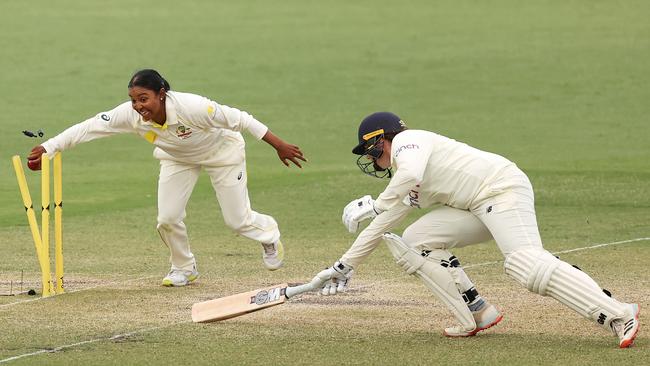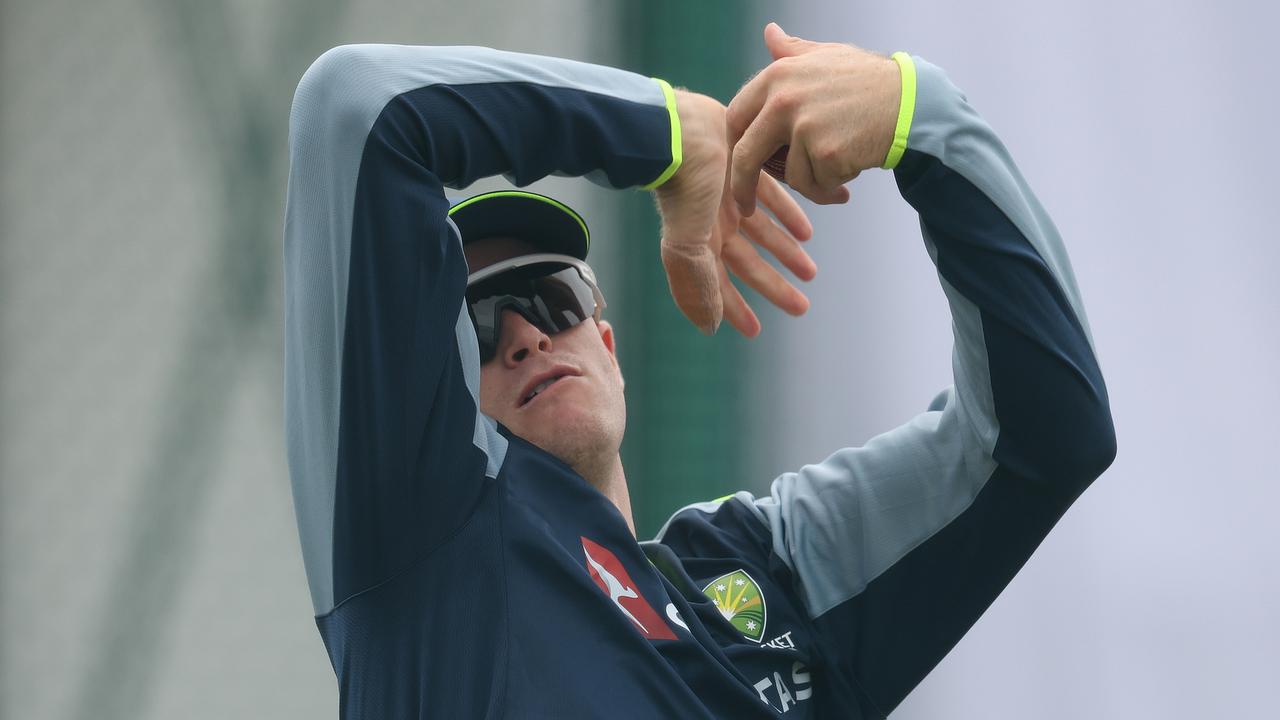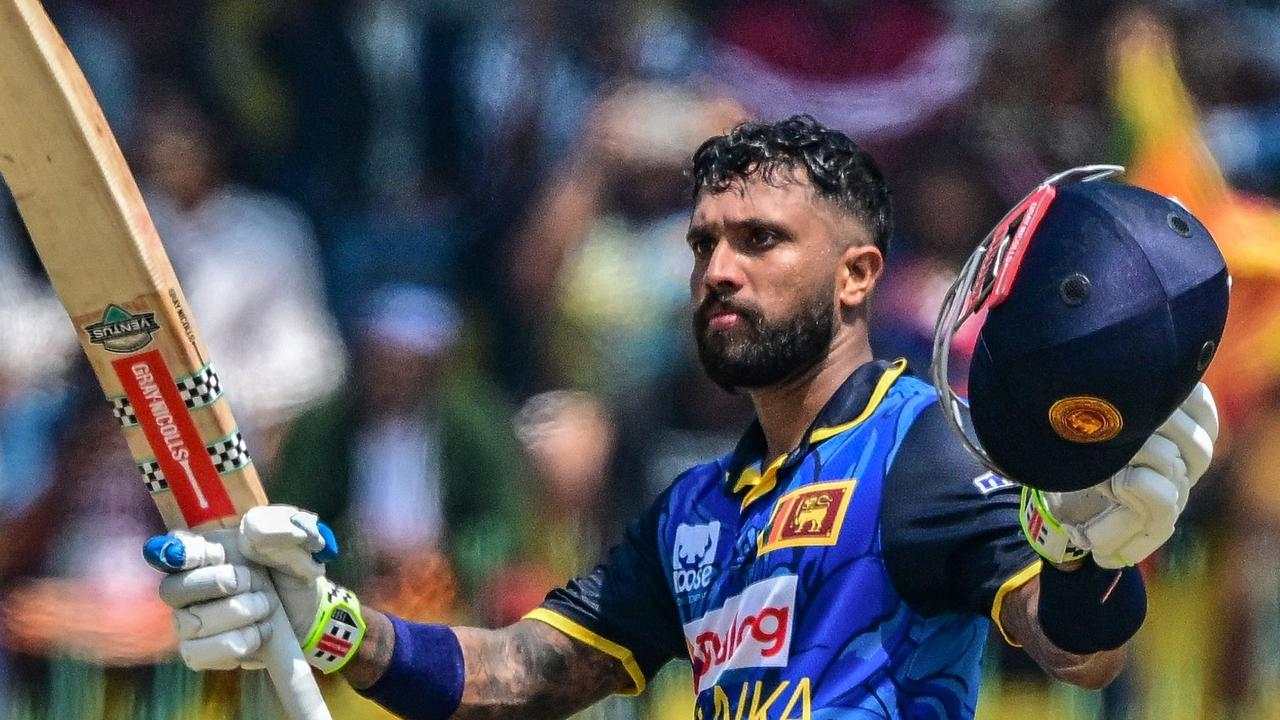The women’s game soars as Big Bash League flounders
Cricket Australia’s two greatest achievements of the past decade have been the BBLs and women’s cricket. One is rising. One half of the other is wallowing.

Cricket Australia’s two greatest achievements of the past decade have been the BBLs and the advancement of women’s cricket. One is rising. One half of the other is wallowing.
The Women’s Ashes Test, which concluded on Sunday evening in Canberra, was an event for the ages, a game that defied weather, limited time and expectation.
Meanwhile, the men’s BBL final on Friday was a damp squib at the end of a season that has had more troubles than most and one that follows the downward trend of recent years.
The BBL is in trouble. It has been bled dry by its length and is but a faint trace of the tournament that was once considered the best in the world behind only the IPL.
Remember when giants such as Shane Warne, Chris Gayle and Lasith Malinga lit up the evenings, before the Big Bash became unviable for international stars. Remember when it was so robust it was sold at market to two broadcasters?
These days the tournament drags on too long and the game’s best players can earn more playing in any number of shorter T20 leagues around the world.
However the multi-format Women’s Ashes series, which now switches to ODIs, reveals a game advancing at a measured but relentless pace.
Australia’s Lisa Sthalekar claimed it was “the greatest Test match that I have been luckily enough to be involved in” and added her voice to the overwhelming call for the games to be stretched to five days. England’s Isa Guha called it “one of the greatest of all times”.
The teams were forced to play attacking cricket, setting up a thrilling finish thanks to a sporting declaration from Australia and outstanding batting from England.
Katherine Brunt’s bowling efforts were enormous and will go down in history alongside England captain Heather Knight’s batting in the game. Australia’s stars — new and established — held their heads high.
Knight’s voice shook with emotion as she described how the possibility of winning took hold.
“I felt really calm out there while I was batting, me and Nat (Sciver) got that really good partnership together,” she told the BBC. “We just felt like we were going to do it really and then the psychology changed a little bit, we lost a couple of wickets and suddenly we were favourites, a few of the batters will look back and be quite frustrated with their dismissals. There was a point where we could have knocked it round, but the fact we went for it, the fact we got close, shows the fight and the character in that team, it makes me proud.”
Sthalekar, Guha, Knight and Alex Blackwell played in the 2011 Test that Australia won after declaring 48 runs behind England’s total.
In her important new book, Fair Game, Blackwell talks of how, when Rene Farrell got the wicket of Jenny Gunn at the end of her spell, she discarded plans to take her off and then watched in delight as the bowler snared a hat trick that changed the game and is still talked about.
That match was played at Bankstown Oval, the players found shade beneath a portable gazebo, the teams shared two toilets that had saloon doors, which allowed little privacy. Media interest was minimal.
Blackwell’s book is a powerful account of changing times in her career, which stretched from 2003 to 2017 and included 251 international games. She tells of how the women (no partners) were invited to the 2006 Allan Border Medal presentation and despite the fact they had just won the 2005 World Cup were essentially ignored all night.
Belinda Clark had retired and while she now gives her name to the female player of the year award she was not even acknowledged at the event.
Young though she was, Blackwell wrote a powerful and respectful letter of complaint to Cricket Australia chief executive officer James Sutherland after the evening, which, among many astute observations, included the line: “I felt disappointed after attending the evening because it appeared, from my point of view, that Cricket Australia did not demonstrate that it is equally as proud of its women’s team as it is of its men’s team.”
The Australian Women’s Cricket Council officially became part of Cricket Australia in 2003, but old attitudes took some time to change. Blackwell’s encounters with sexism and homophobia within the organisation are confronting given these things happened so recently.
After some missteps Sutherland helped drive the creation of the WBBL and the recognition of the women’s game within the organisation.
On Sunday, the former chief executive was at the game in Canberra in the crowd cheering on his daughter Annabel, who bowled some brilliant spells.
And the BBL final? The greatest interest in that event seemed to surround the decision to block Steve Smith from participating and Dan Christian’s facetious search for club replacements. The Scorchers won and their efforts, especially given they are in forced exile from their homes, must be applauded, as must the efforts of all who endured the deprivations of the season.
Still, ratings were down, interest appears to have departed and this is an event desperately in need of renovation.
Callum Ferguson did not hold back on Triple M.
“I’m filthy with the BBL to be honest,” he said. “Cricket Australia sell it as the second-best competition in the world — I struggle to see that with the fact that we’re not getting the best players playing anywhere near enough.”


